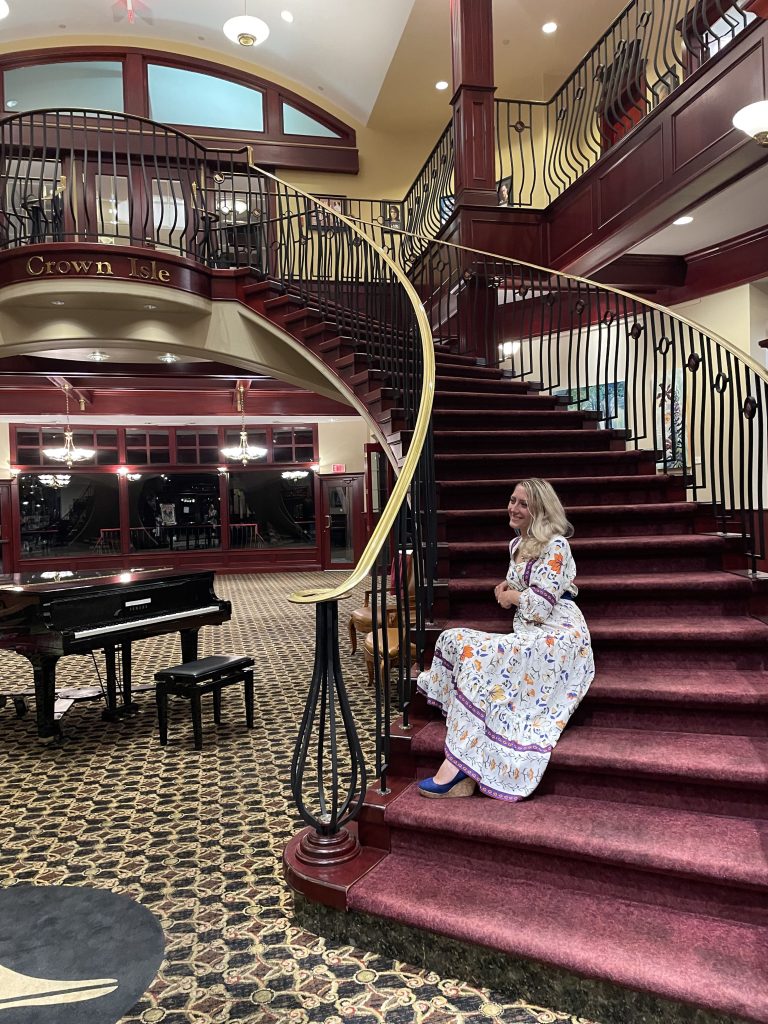
All My Rooms
Royal bedrooms don’t save you from loneliness if you’re not allowed to scream, kiss, or laugh outside the etiquette. When you’re raised as a princess, everything is handed to you — but you live by someone else’s rules. To descend into the ordinary, you end up sleeping on a mattress in the kitchen.Is freedom more important than propriety? Or would you choose luxury without freedom?
Well. I’m still sleeping in the kitchen.
In Canada, a “kitchen” usually means an open-concept living space—kitchen, dining area, and living room all rolled into one.
Ours is not that. Ours is a stove, a sink, a bunch of cupboards and shelves, a fridge, and a table. Definitely not a living room.
Back in Canada, I also lived and slept in the living room for the last six months. I gave the kids each a bedroom and screened off my own corner with a beautiful Japanese divider. Slept right on the floor, on a mattress—because one day, Alisa jumped onto my bed with full force and shattered the frame to pieces.
The story of me trying and failing to buy a new one—with a David Bowie lookalike involved—is a post for another day (around April, I think).
So yes, I sleep in the kitchen.
And somehow, I need this—for universal balance.
You see, on weekends, I sleep in one of my rooms. Sometimes I choose the one with wallpaper like a royal bedroom, a lamp with candelabras, heavy curtains, and an eclectic mix of antique furniture. Paintings cover the walls—real ones, not prints. Originals by exhibiting contemporary artists from around the world, collected over decades by my father and me.
Other times, I pick the room with the attic window:
walls lined with books: museum-quality art books, world history, hundreds of guidebooks, and fiction from Pelevin to Ulitskaya, from Pavel Sanaev to Akunin, Aksyonov to Veller. Tokareva (for when I need to relax my brain) to Nabokov—well, modern re-readings and side-by-side comparisons of his texts in English and Russian.
No more Bykov or Lukyanenko—those were removed and replaced with Tokareva and the Strugatsky brothers.
This room, it seems, was built in case of long-term tower imprisonment—because that floor also has fitness machines and spiritual literature “for inner enlightenment.”
As a child, I was often put under house arrest (for skipping school—“Field trips” around Moscow were far more educational than textbooks. And of course, there were the boys who wrote poetry in stairwells, flooded my mailbox with letters, and sometimes several would escort me through Uzkoe Park with my boxer dog who constantly ran away).
It felt like all of Moscow knew my relatives and, out of respect for their reputation, rushed to report:
“On such-and-such day, in such-and-such place, Katya was spotted kissing inappropriately and embracing someone far too intimately.”
And so the cycle began:
“We need to talk” → Shame → Tower.
My romantic leads became characters from books—dramatic, arrogant, neurotic, aristocratic, hyper-intelligent, and emotionally twisted. Dorian Gray types. With my wild imagination, I genuinely replaced real people with them.
Returning to geography, biology, and social studies—by the textbook—felt like cruel punishment.
If GPS trackers existed then, I’d have had a dozen strapped to me.
I was always running away. It was never enough—never big enough, exciting enough, free enough.
Every trip outside Russia became a mad, magical tale fromI brought to life straight from the page. Seriously. That’s how it was.
Then I’d come back home—to walls, to comfort, to predictability and decency.
I don’t know… maybe those confinements did spare me from a lot—probably.
So many languages mastered, so many books devoured. And yet—how much was left unexplored? How many streets unwalked, kisses unclaimed, lives unlived
But they also robbed me of discoveries, wanderings, kisses, and full-on living.
Raised to be the perfect princess—flawless etiquette, diverse knowledge, trained to uphold the family name and one day inherit the crown to rule the world — I personally didn’t enjoy it at all.
Princesshood came with rules not my own.
It felt awkward to rebel, to be silly, to do something “unprincesslike.”
I became arrogant, selfish, discontent.
I really didn’t like that version of me.
But how do you reject being a princess when so many doors are already wide open—by default?
Sleeping in the kitchen, doing low-skilled jobs, pearls and crowns discarded—I open my own doors now.
I rebel, I act foolish, I kiss passionately and hug inappropriately.
The kitchen brings me back to life on my terms—even if those terms come with a trail of painful, self-inflicted rakes to the face.
And still, I wonder: Those princess rules and childhood confinements—they enforced discipline.
They instilled fear and shame. But they were structure. They were boundaries. And my boundaryless world now? It comes with such extreme emotional highs and lows that I sometimes can’t handle it without help.
So maybe… Maybe it is better to go to the tower imprisonment? Self-imposed exile?
To study the world through guidebooks and museum catalogs, to explore the lives of truly psychotic fictional characters…Maybe.